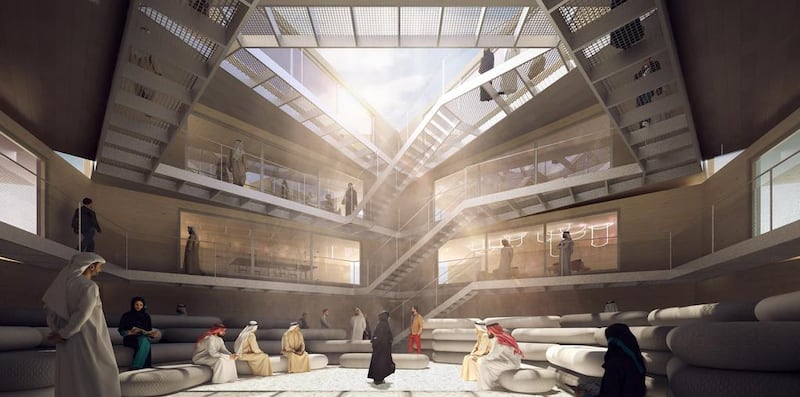Middle Eastern economies that are using long-term visions to diversify away from oil dependency, such as the UAE, offer a new model for sustained political and economic success, new research argues.
Growing nationalism and populism in recent years, arising from deep-rooted economic discontent, means that governments around the world need to better focus on the enhancement of their people’s overall economic well-being rather than just maintaining growth.
Well-being can be seen in terms such as access to better medical facilities, vocational training and education, and technological advancement including developing sources of clean energy.
“Unlike GDP growth, which is rather easy to track, governments need to be more disciplined in the attainment of other socioeconomic goals,” argue Credit Suisse International Wealth Management’s chief investment officer Michael O’Sullivan and Krithika Subramanian , its macro-strategist.
The authors are writing in a report commissioned by Credit Suisse Research Institute (CSRI), the Swiss bank’s in-house think tank, on the outlook for global politics, and released to coincide with the World Economic Forum in Davos.
O’Sullivan and Subramanian write that to achieve these broader socioeconomic objectives, governments need to be more forward-looking, an approach which often makes life difficult for politicians in many developed countries.
_________________
Read more:
[ Sheikh Mohammed bin Rashid announces UAE Cabinet reshuffle ]
[ UAE right to put AI on the political agenda, says European Commissioner for Innovation ]
[ Emirates to build world's first Aviation X-Lab in Dubai ]
_________________
“Indeed, it is no surprise that the model we highlight is found more often than not in stable, consensus-driven countries,” they say. “Countries such as China and the UAE, for instance, have been able to build significantly better infrastructure than India, in a shorter period of time.”
Last year, Sheikh Mohammed bin Rashid, the Prime Minister and Ruler of Dubai, announced the UAE Centennial 2071 plan aimed at sustaining the country's development into its 100th anniversary. At its heart the plan includes developing a government that prioritises the people, invests in education, establishes a diverse economy and promotes tolerance and social cohesion.
For emerging economies like the UAE and Saudi Arabia, improvements in institutional quality and subsequent economic progress is being helped by such long-term visions.
“We increasingly see this as a driving force for more holistic changes,” the report says.
Saudi Vision 2030, led by Crown Prince Mohammed bin Salman includes the sale of a 5 per cent stake in state-owned Saudi Aramco, reforms granting women greater mobility and the rapid development of tourism and entertainment sectors.
However, the most consequential change in global politics today is concern about American dependability, particularly in the Middle East, says Nicholas Burns, Professor at Harvard University and former US Under Secretary of State, in the Credit Suisse institute report. As a result, one of the key issues to watch in the year ahead is whether countries in the Middle East “can manage to contain the powerful forces that make theirs the most violent and unstable region in the world”. With America’s traditional role as a bulwark in the region less certain and Russian and Chinese influence growing, it will be left to Saudi Arabia and its allies including the UAE to take greater responsibility for resolving crises in Yemen, Syria and elsewhere, says Burns.






